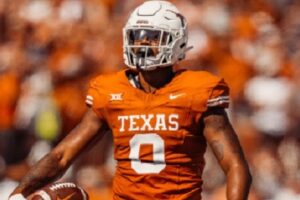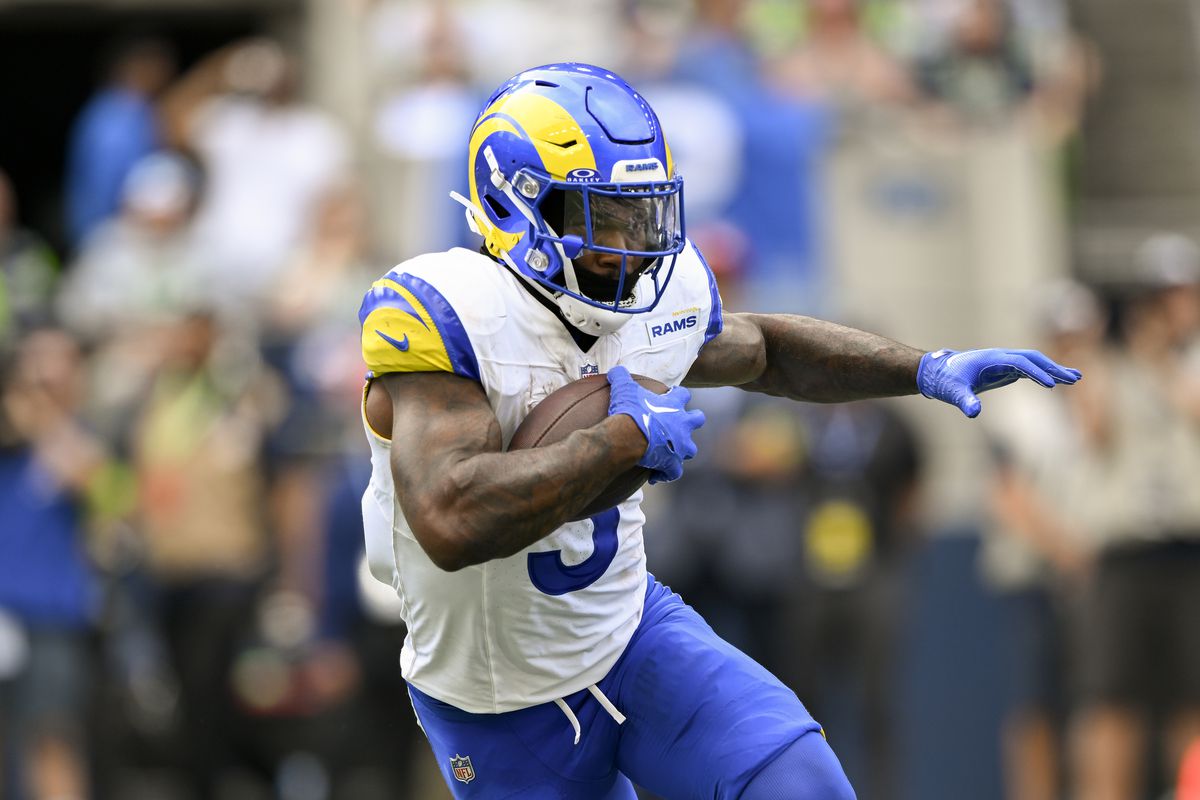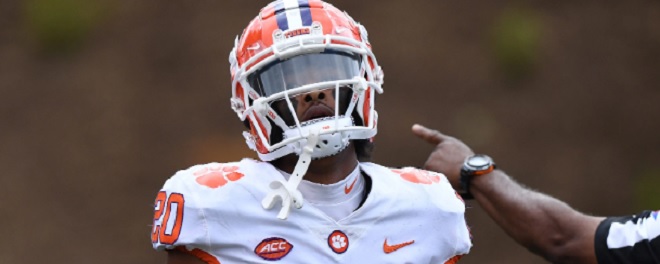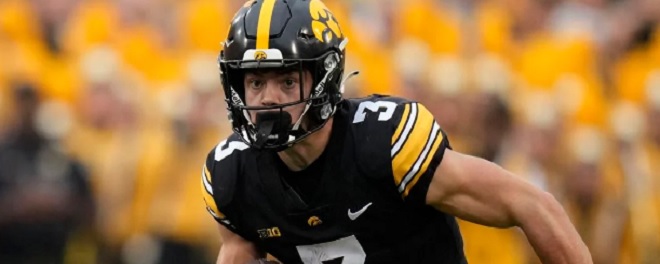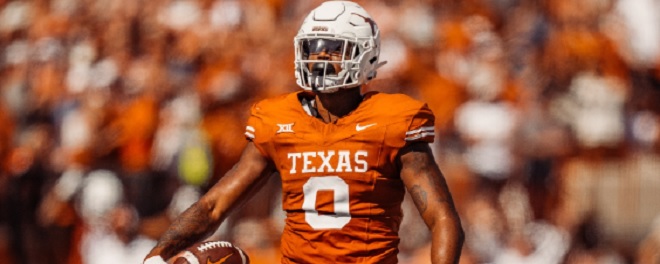It was nice to have Big Ten football on TV again. I know there are many in the media who would disagree with that, however. This includes our old pal Christine Brennan, who thinks that playing football through this so-called pandemic is worse than Jerry Sandusky raping little boys:
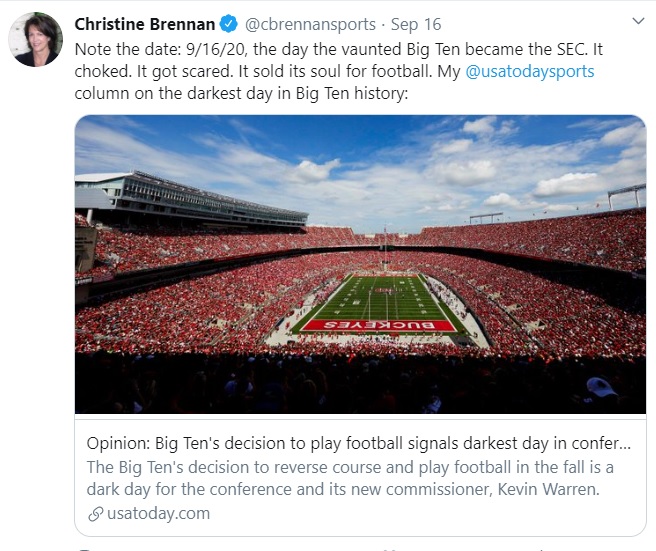
For the rest of us sane individuals, we were thrilled to once again watch Big Ten football, knowing there were absolutely no repercussions and all upside. That is, of course, until we were subjected to one of the worst rules in college football.
If you didn’t see the game, two starters in Nebraska’s secondary were thrown out of the game for targeting. One was a legitimate call on a vicious hit by the defender, but the other was accidental and not overly serious. There’s no reason that player should have been ejected.
I understand that every targeting call is subjective, so I’m not going to even argue that these sorts of penalties should be judged differently. What I would like to propose is that college football changes the manner in which it reviews these infractions.
I think the worst part of any college football contest is when they pause everything to review a targeting call. It disrupts the flow of the game to stop it completely, just to diagnose a hit that may have been completely accidental in order to determine if a player should be ejected.
What I’d like to propose is this: When a hit to the helmet occurs, an official should signal a 15-yard penalty, just as the refs do in the NFL. However, unless there’s an injury that pauses gameplay, the contest should continue as normal, except the offending player would have to be sidelined temporarily. As gameplay continues, the hit to the helmet should be reviewed. Once the ruling has been determined, those reviewing the call should signal the verdict down to the official, who could then announce the ejection or the permission for that player to reenter the game.
This would be a much better process of handling targeting because it would not disrupt game flow at all. Everything would continue smoothly. It would be a much better approach than to wait around as many as five minutes to determine an ejection ruling. Our current system is such a drag, but reviewing the call as the game is being played would allow for uninterrupted gameplay.
College football was nearly ruined by those like Christine Brennan, but it was ultimately saved by tremendous leadership and smart people who have carefully reviewed science and data. That, however, doesn’t mean that we should be complacent and fail to improve college football. This rule change would allow for smoother gameplay, and outside of the miserable blue checks, I think everyone would be in favor of that.
Back to NFL Picks
2024 NFL Mock Draft - April 23
NFL Power Rankings - Feb. 22
Fantasy Football Rankings - Feb. 19
NFL Picks - Feb. 12






